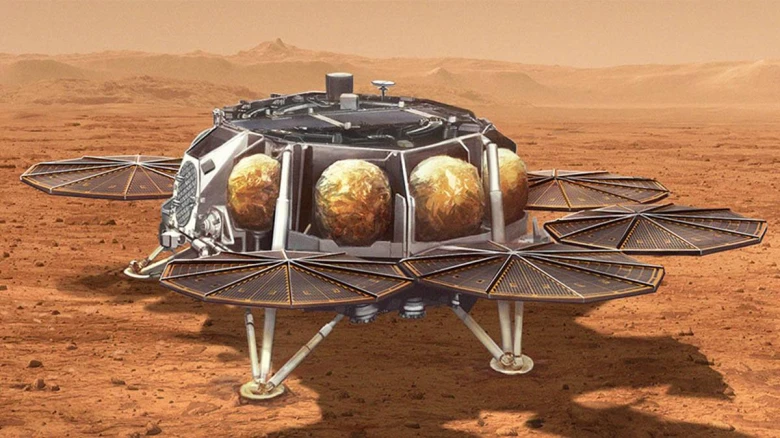National

The crew will "revolutionise humanity's understanding of Mars by bringing scientifically selected samples to NASA's Mars Sample Return Campaign," according to NASA. The campaign will help the space agency achieve a goal of solar system exploration that has been a top priority for the organization since the 1970s.
Digital
Desk: NASA and the
European Space Agency (ESA) have established a new group of researchers in a
bid to maximise the scientific potential of Mars rock and sediment samples that
would be returned to Earth for in-depth analysis. The team of 16 researchers
will be called the "Mars Sample Return Campaign Science Group" and
will function as a science resource for the campaign’s project teams and for
related Earth-based ground projects like sample recovery and curation.
NASA and ESA
are partners in the Mars Sample Return Program.
The members of
the Mars Sample Return Campaign Science Group are as follows:
"These 16
people will serve as the face of Mars Sample Return science." In a press
statement, Michael Meyer, lead scientist for the Mars Exploration Program at
NASA Headquarters in Washington, said, "They will build the roadmap by which
science for this historic endeavour is accomplished - including establishing
the processes for sample-related decision-making and designing the procedures
that will allow the worldwide scientific community to become involved with
these first samples from another world."
The crew will
"revolutionise humanity's understanding of Mars by bringing scientifically
selected samples to NASA's Mars Sample Return Campaign," according to
NASA. The campaign will help the space agency achieve a goal of solar system exploration
that has been a top priority for the organization since the 1970s.
This
collaboration between NASA and the European Space Agency (ESA) would be the
first to return samples from another planet and the first to launch from
another planet's surface. NASA's Resilience During its exploration of an old
lakebed on Mars, the rover collected materials. These samples are regarded to
have the best chance of revealing information about Mars' early development,
including its potential for previous life.
Understanding
Mars will help us learn more about other rocky planets like it, including
Earth.
Leave A Comment